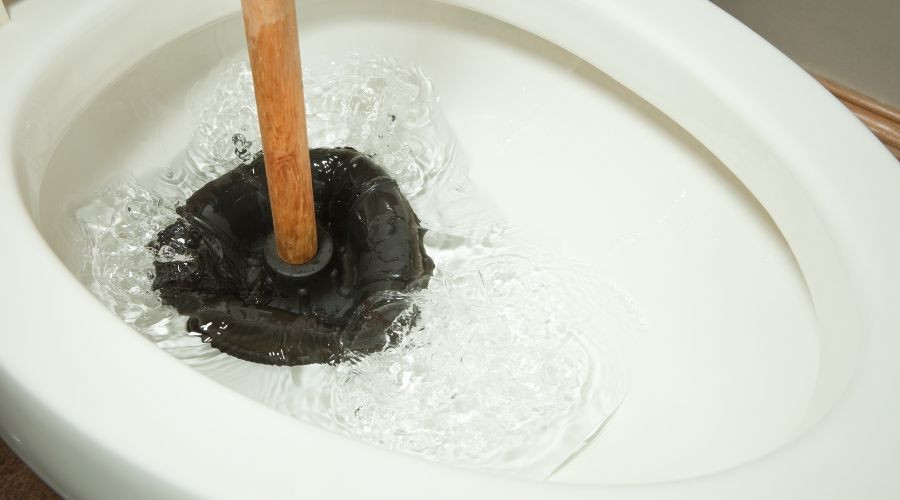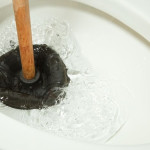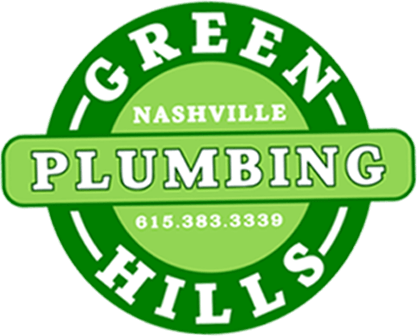Why Do a Home’s Toilets Keep Clogging?
Clogged toilets are one of the most common reasons homeowners contact plumbers. They are also one of the most frustrating problems they have to deal with–not only does it render a bathroom unusable until the problem is solved, but it may also lead to messy overflows, which are hard to clean up. Fortunately, there are a few key reasons that toilets become clogged, and they’re typically rather easy to avoid by taking a few important steps. Read on to learn more about toilet clogs and how to avoid them.
Only Flush Things That Are Designed to Be Flushed
 The most important way to avoid a clogged toilet is to remember that the only thing that should be flushed down a toilet (aside from the obvious) is toilet paper. Toilet paper is specifically designed to break down when it becomes wet, which prevents it from causing a toilet clog.
The most important way to avoid a clogged toilet is to remember that the only thing that should be flushed down a toilet (aside from the obvious) is toilet paper. Toilet paper is specifically designed to break down when it becomes wet, which prevents it from causing a toilet clog.
Never flush things like paper towels, tissues, diapers, or other products down the toilet, as clogs are almost certain to occur. This includes wipes–even those that are marketed as being “flushable.”
Use Less Toilet Paper (or Flush More Often)
 Although toilet paper is designed to be flushable, flushing too much at once can lead to problems. To avoid clogs, homeowners should try to minimize their toilet paper usage whenever possible. If that's not practical, it's a good idea to flush multiple times. This approach can help prevent blockages more effectively than waiting to flush all the toilet paper at once.
Although toilet paper is designed to be flushable, flushing too much at once can lead to problems. To avoid clogs, homeowners should try to minimize their toilet paper usage whenever possible. If that's not practical, it's a good idea to flush multiple times. This approach can help prevent blockages more effectively than waiting to flush all the toilet paper at once.
How to Prevent Sewer Line Clogs
While many clogged toilet issues relate to the toilet itself, it’s important to note that a home’s sewer line can also become clogged. This can cause the toilets inside the home to clog repeatedly, despite employing the tips shared previously. Accordingly, it is important to prevent sewer line clogs in the first place, as these problems can be more difficult to address.
Homeowners can take several practical steps to prevent sewer line clogs. One important measure is to be mindful of what gets poured down the drains, particularly avoiding grease in the kitchen sink. It’s also beneficial to use a mixture of baking soda and vinegar, or to opt for safe, eco-friendly drain cleaners, to tackle small clogs promptly. By addressing these issues early on, you can stop them from escalating into bigger problems down the line.
One other thing that many homeowners fail to consider is hair. Hair is one of the leading causes of clogged sewer lines, so take steps to trim long hair and dispose of it in a garbage can before it can enter a home’s drains. It is also a good idea to use drain screens to prevent items from accidentally entering the pipes of a home.
Homeowners who suspect that they have a clogged sewer line should always contact a professional plumber. Homeowners should never attempt to clean sewer pipes themselves, as they can cause extensive damage.
About Green Hills Plumbing
Green Hills Plumbing has been providing plumbing services to homeowners in the Nashville area since the 1970s. Dedicated to going the extra mile for their customers, their expert technicians provide upfront pricing and a satisfaction guarantee. Call Green Hills Plumbing today for all clogged toilet repair needs in Nashville.



